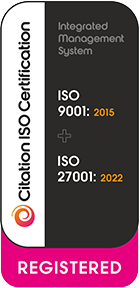If you are struggling with addiction, you are not alone. You can take control, regain your life, and get back to making memories with those who mean the most.
Drugs and alcohol interact with neurotransmitters in the brain – dopamine floods the brain with feelings of pleasure and euphoria, making it highly addictive and difficult to stop.
Over time, the brain adapts to these feelings which leads to tolerance and dependence, meaning you’ll need to take a higher dose to achieve the same effects. Addiction can be extremely dangerous, and seeking support is the best thing you can do.
Let’s take a look at the top 5 most addictive drugs and the negative impact they can have on your body mentally and physically. We will also look into the treatment options you may want to consider.
Understanding Drug Addiction
Understanding your addiction is an important first step toward recovery. It requires a comprehensive approach, considering biological, psychological, and social factors.
Biological research reveals changes in the brain’s reward system that impact neurotransmitter activity. Psychological factors like stress and trauma, as well as social influences such as peer pressure and access to treatment, also play important roles.
Understanding that addiction is a chronic condition can help beat the stigma associated with addiction. Know that this is a medical condition, it is not your fault, and you can achieve lasting sobriety.
Why Are Certain Drugs So Addictive?
Drugs are so addictive because they interact with the brain’s reward system. When drugs enter the system, the brain releases dopamine, creating feelings of pleasure and euphoria. Over time, the brain adapts to frequent drug abuse which will build tolerance and dependence.
Top 5 Most Addictive Drugs
Although there are many different addictions, here is a list of some of the most common addictions and the negative impacts they can have on you:
Cocaine
Cocaine is a stimulant drug that increases dopamine levels, causing heightened energy and euphoria. Rapid tolerance buildup and harsh crashes contribute to its addictive nature.
When you take cocaine, dopamine is released in the brain stimulating the brain’s reward system, and you become addicted to the feeling and may feel depressed and anxious when not using the drug.
People tend to become addicted to the drug because they think it makes them feel good. What they don’t realise is that the drug is responsible for the negative feelings they feel after the drug has worn off – also known as a comedown.
Cutting out this drug altogether will soon help you to feel back to your normal self. A detox is an important first step toward recovery. Therapy, counselling and ongoing support can help you achieve long-term sobriety.
Negative Impacts
The negative impacts cocaine can have on your health, short and long-term can include:
- Neurological Effects such as headaches, seizures and strokes.
- Organ Damage
- Sexual Dysfunction
- Gastrointestinal Ulcers
- Weakened Immune System
Not only does cocaine impact your health, it also can affect you, financially and socially and it can take a toll on your life. However, don’t worry – all of this can be reversed with the help of Rehubs!
For help battling cocaine addiction, get in touch with one of our addiction therapists here at Rehubs. Let us help you through this tough time!
Crack Cocaine
A more potent form of cocaine, crack is smoked for a quick but intense high, producing intense and short-lived euphoria, followed by a rapid crash. This makes it dangerously easy to become addicted to.
The stages of crack cocaine addiction typically begin with experimentation, progress to regular use, and end in addiction leading to compulsive drug-seeking behaviour and severe physical and psychological dependence.
Negative Impacts
Chronic crack cocaine use can lead to a range of negative health effects, including:
- Cardiovascular issues, such as heart attacks, strokes, and irregular heart rhythms
- Lung Damage
- Weakened Immune System
- Dental problems such as tooth decay, gum disease, and tooth loss
- Anxiety
- Paranoia and Psychosis
- Sexual Dysfunction
Along with also damaging you financially and the relationships around you. Seek help today to overcome your addiction!
Heroin
Heroin is derived from morphine. It binds to the opioid receptors in your brain, leading to intense euphoria. Tolerance and withdrawal symptoms make it incredibly hard to quit.
The stages of heroin addiction often begin with experimentation, as individuals may initially use the drug recreationally or to alleviate pain.
However, continued use can quickly escalate to dependence, where you may experience cravings and withdrawal symptoms when not using the drug.
Negative Impacts
Heroin use comes with a list of negative side effects on your body these can include:
- Respiratory Problems
- Skin Abscesses and Infections (caused by injecting heroin)
- Collapsed Veins
- Gastrointestinal Issues
- Malnutrition and Weight Loss
- Liver and Kidney Damage
Although some of these problems can heal when you stop using the drug, a lot of the time regular heroin use can cause long-term health problems.
Like most addictions, heroin use can cause you to detach yourself from friends and family. This can ultimately destroy your relationships – which can contribute to the seemingly endless cycle of addiction. You should always seek help if you are experiencing an addiction to heroin.
Methamphetamine
Methamphetamine, commonly known as meth is a powerful and highly addictive central nervous system stimulant.
It is chemically similar to amphetamine, a drug used to treat attention deficit hyperactivity disorder (ADHD) and narcolepsy, but methamphetamine has a stronger effect on the central nervous system.
Meth increases the release of dopamine in the brain, leading to intense feelings of euphoria, increased energy, and alertness. Making it highly addictive and difficult to stop.
Negative Impacts
Meth abuse can lead to a range of negative health effects, these can include:
- Cardiovascular problems
- Dental issues (often referred to as “meth mouth”)
- Skin sores
- Severe weight loss
- Cognitive impairment.
Long-term use can also result in psychosis, paranoia, and violent behaviour.
And again, meth can also affect your financial situation and relationships. Let us help you achieve lasting sobriety. Enquire about our intensive online rehab program today!
Alcohol
Alcohol is highly addictive. It’s prevalent across the UK – people enjoy a drink at weddings, birthdays, and after a long day at work. However, this widespread availability and social acceptance can hide its addictive potential, leading to physical and mental health issues.
You may find it fun to go out with friends and drink and dance, but regularly doing this can lead to addiction. There are ways you can have fun without it! You can lead a fun and fulfilling sober life.
There are four stages to alcohol addiction:
- Binge and social drinking
- Stage 2: Early stages of alcohol abuse
- Stage 3: Middle stage
- Stage 4: Fully developed alcohol addiction
You can choose to get help in either of these stages – however, it is important you seek help whenever you start to notice the symptoms of alcoholism. If you find yourself doing any of the following you must click this link:
- Lying about drinking
- Hiding your drinking
- Feeling agitated when you haven’t had a drink
- Drinking at unusual times ie. when you wake up
- You find it difficult to reduce your drinking
Even if it doesn’t feel like a problem now, it can very quickly develop into a bigger one so reaching out and talking to someone is really important.
Negative Impacts
Alcohol is really bad for the body, excessive drinking can cause a number of health problems, such as:
- Weakened heart muscles
- Dental problems
- Severe anxiety and depression
- Liver failure
- Frequent illness due to a weakened immune system
- Skin problems
- Organ and brain damage
Alcohol can cause lifelong health problems as it is poisonous to the body. Reach out to family and friends and get help for your addiction.
Treatment Options for Addiction
Depending on your addiction and the severity, treatment options will vary. Some of the common treatment options are:
- Support groups
- Detoxification
- Impatient rehab
- At-home rehab
- Medication-Assisted Treatment
- Therapy and counselling.
However, you should always talk to a professional about what treatment is best for you.
Get Help Today
Rehab doesn’t have to feel like a chore. At Rehubs, we have modernised the rehab approach so that you can fit it into your daily routine with no limitations on your commitments whilst also working towards the best version of yourself.
We will give you support and guidance on how to battle your addiction and resources that you can access to develop and flourish in a sober life.
With 1-1 sessions and support groups, you will be able to support yourself and others battling the same addiction whilst maintaining abstinence from your addiction.
Take control of your life today and together we can beat your addiction. Fill out a free and private, confidential form, and one of our dedicated addiction specialists will be in touch! Begin your new life today.







